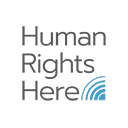Past Events
Conference: Advancing Social, Economic, and Cultural Rights in a Polarised, Digitalised, and Unequal World [4-5 September 2025, Leiden University]
The conference, organised by Luísa Pinto e Netto, Lucas Dikkers, and Nathalie Schnabl, marked the launching of the NNHRR Working Group on Economic, Social & Cultural Rights (ESCR) and the project “Evolving Rights: Social Rights in the Era of Climate Change and Digital Revolution” at Leiden University. Over the span of two days, participants explored the legal, theoretical, and practical dimensions of ESCR, including enforcement mechanisms, constitutional debates, and the intersection of ESCR with urgent global challenges such as climate change, inequalities and discrimination, technological disruption, and rising authoritarianism and political polarisation. The opening keynote, “Economic and Social Rights in an Anti-Democratic Era”, was delivered by Prof. Aoife Nolan (University of Nottingham, Council of Europe). It was followed by a plenary session, exploring social rights in the regional systems of human rights. The plenary, chaired by Dr. Misha Plagis (Leiden University), featured Prof. Catarina Botelho (Catholic University Porto), Dr. Aua Balde (Catholic University Lisbon, UN), and Dr. Lorena Sosa (Utrecht University). After lunch, participants split into several parallel panel sessions, including “Protecting ESCR in Times of Conflict”, “ESCR, Mobilization and Effectiveness”, “ESCR, Equality, Non-discrimination”, and “Realizing the Right to Housing”. The sessions were followed by other parallel panels, namely “Cultural Rights in Focus”, “Digital Challenges to ESCR”, and “ESCR and Structural Inequalities”. The first day closed off with a second plenary session on “Social Rights in the Netherlands - Now and Into the Future”, chaired by Lucas Dikkers (Radboud University), and featuring Prof. Ingrid Leijten (Tilburg University), and Prof. Gijsbert Vonk (Groningen University, Maastricht University). The second day kicked off with a third plenary session on bridging academia and practice in ESCR. It was chaired by Dr. Nathalie Schnabl (Open University) and welcomed speakers Prof. Yvonne Donders (University of Amsterdam, UN HR Committee), Prof. Janneke Gerards (Utrecht University, Council of State), and Prof. Ann Skelton (Leiden University, University of Pretoria). The plenary was followed by parallel panel sessions, exploring “ESCR, International Norms and Monitoring Systems”, “Legal Frameworks for Climate-Related ESCR”, “Intertwined ESCR”, and “Ideology, Crisis, and the Erosion of Social Rights”. Following lunch, participants once again split up to attend different parallel sessions, titled “Judicial Interpretation and Legal Justification of ESCR”, “Climate Justice and Vulnerable Groups”, and “Enshrining ESCR in Law and Constitutions”. The conference closed with a final plenary session on “Social Rights at the Constitutional Core”, featuring Prof. Michaela Hailbronner (University of Münster) and Prof. Colm O’Cinneide (University College London).
The full program is available here.
Panel Discussion: Social Rights and Access to Justice in the Netherlands [12 June 2025, Radboud University]
Members of the working group on Economic, Social & Cultural rights got together for the first time at the 2025 Toogdag, the NNHRR's Annual Conference. The working group was founded earlier in the 2024-2025 academic year. Several experts spoke about social rights and access to justice in the Netherlands. Three speakers highlighted different aspects of access to justice through a social rights lens. Dr. Nathalie Schnabl (Open University), one of the working group coordinators, spoke about the barriers and safeguards with respect to access to justice and the rule of law. She highlighted how access to justice requires knowledge, skills, a social network and financial means. Without those means, individuals will have difficulty accessing justice. Dr. Jolanda Andela (policy advior at the Netherlands Institute for Human Rights) spoke about the work of the Netherlands institute for Human rights. A particular focus of the Institute is housing and the protection against poverty. She discussed how the Dutch population is increasingly concerned about poverty, housing and climate change. The childcare benefits scandal in particular demonstrates the importance of improved access to justice; the justiciability of economic, social and cultural rights would be an important step in that direction. Prof. Gijsbert Vonk (Groningen University) discussed the project: “Reform of the Dutch constitution: a blueprint for social rights”. Under prof. Vonk’s lead, a group of scholars are proposing a concrete reform of the Dutch constitution. The proposal consists, among other things, of the introduction of judicial review against the constitution and the strengthening of the social rights in the constitution, going from a programmatic model to an individual rights approach. The panel was chaired by mr. Lucas Dikkers (Radboud University).


